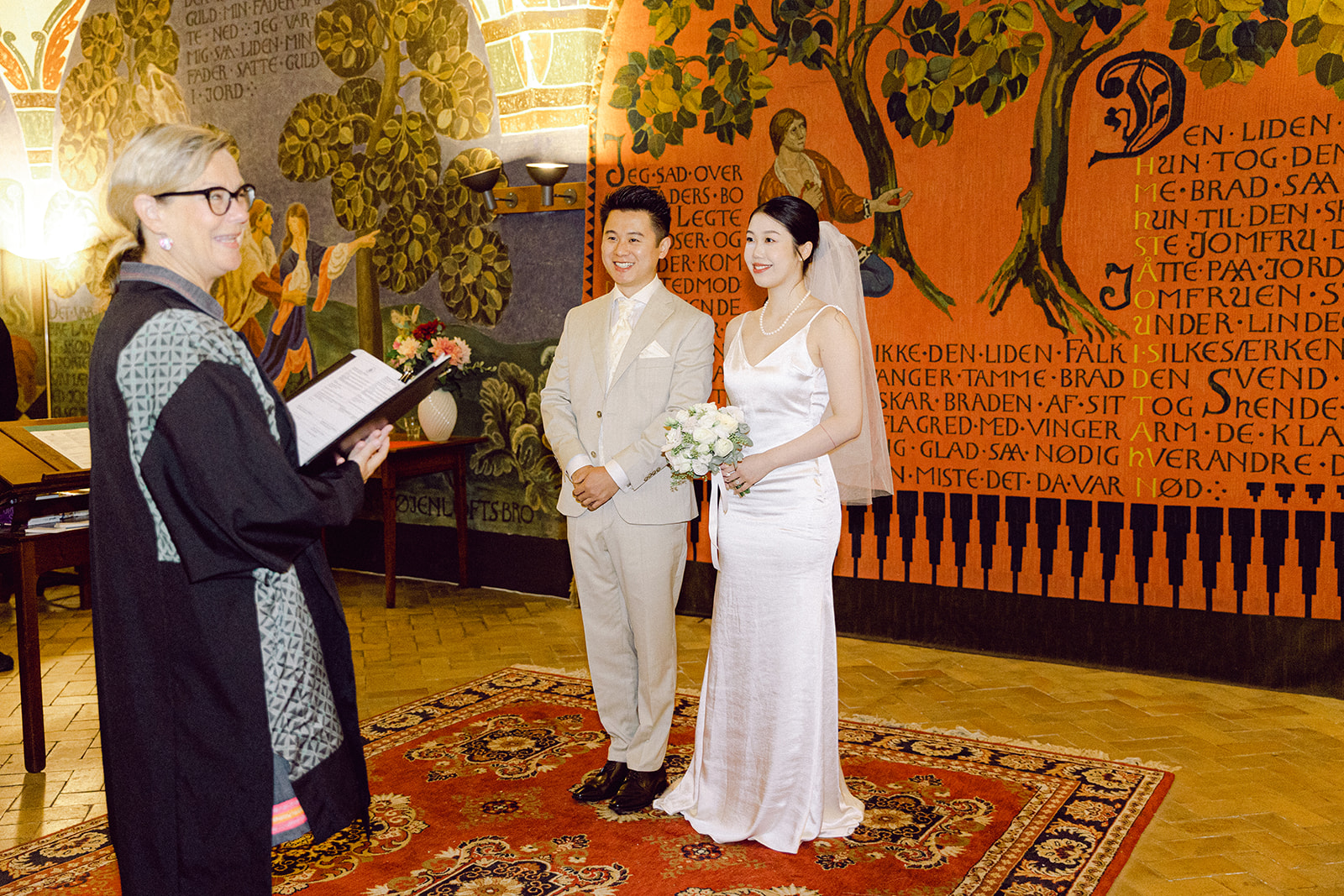Dreaming of a picturesque destination wedding? Look no further than Denmark! With its enchanting landscapes, uncomplicated marriage laws, and warm hospitality, Denmark has emerged as a sought-after wedding destination for couples worldwide. If you’re not a Danish citizen or resident, don’t worry—I’ve got you covered. In this article, I’ll be your friendly guide, sharing my personal experience and providing a step-by-step overview of how to make your Danish wedding dreams come true.
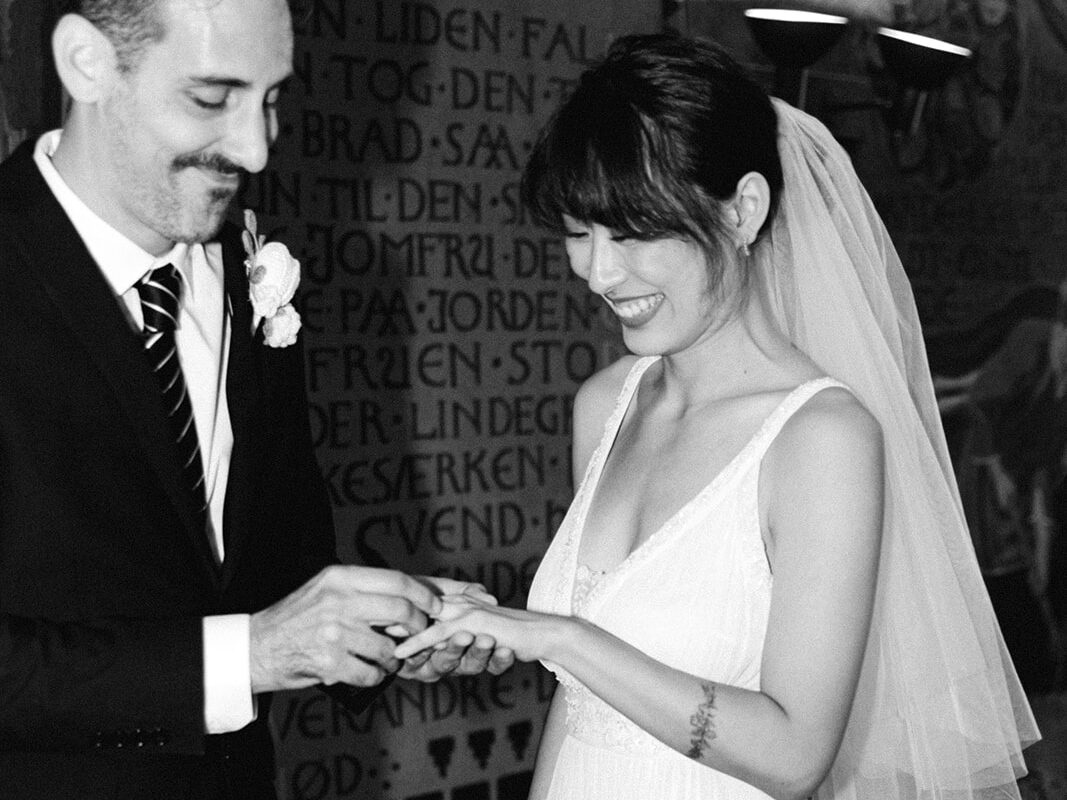
Step 1: Choosing the Perfect Location:
When it comes to picking the ideal location for your Danish wedding, there are a few factors to consider. Think about travel time, venue options, and the availability of interpreters or other support services. Additionally, conducting research on local accommodations, restaurants, and attractions will ensure that your guests have a memorable and enjoyable experience alongside your special day.
- Copenhagen: Denmark’s capital city, Copenhagen is a vibrant and cosmopolitan destination that offers a mix of historical landmarks, modern architecture, and scenic waterways. The city has several picturesque venues that are popular for weddings, including the iconic City Hall, which features a grand staircase, a ceremonial hall, and stunning views of the harbour.
- Frederiksberg: Located just west of Copenhagen, Frederiksberg is a leafy and picturesque suburb that is known for its beautiful parks, elegant villas, and cozy cafes. The municipality offers marriage services at the historic town hall, which dates back to 1870 and features a classic Nordic design with intricate woodwork and ornate ceilings.
- Stevns Klint: If you’re looking for a more remote and natural setting, Stevns Klint is a stunning coastal area located about an hour south of Copenhagen. The area is known for its dramatic white cliffs, lush forests, and abundant wildlife. The municipality offers wedding services at the local town hall or at one of several scenic outdoor locations, such as the beach or the forest.
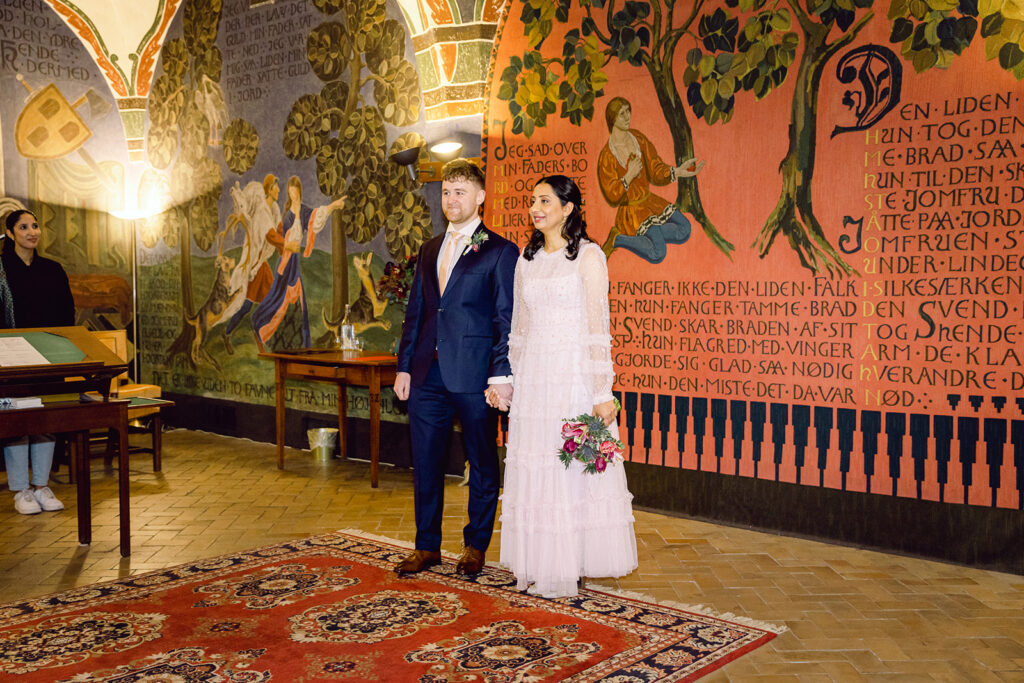
For more information, please check the official website.
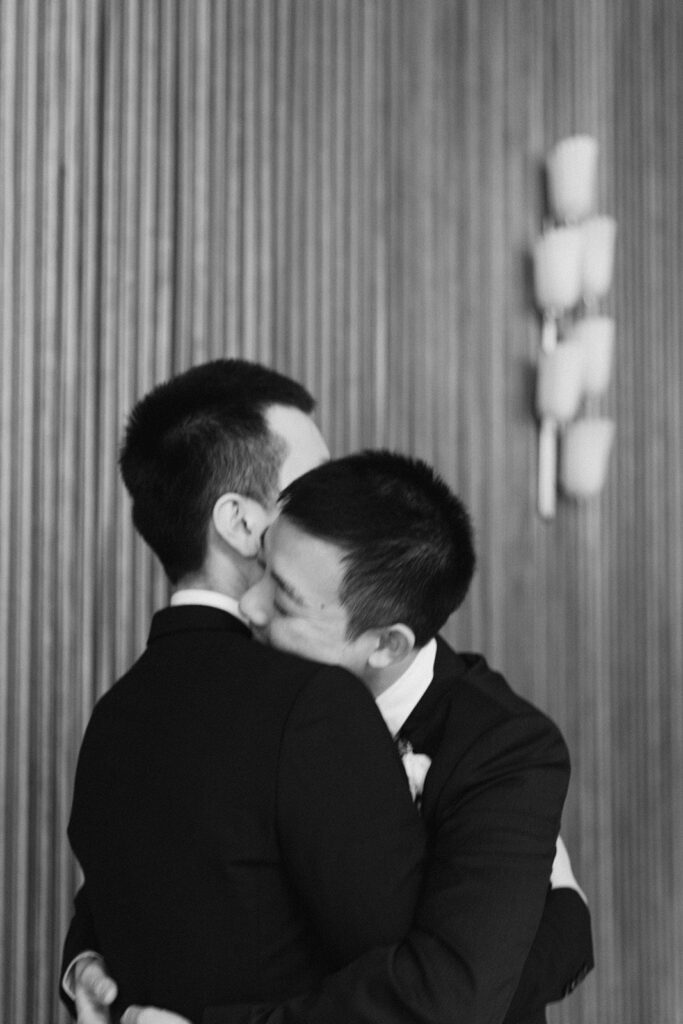
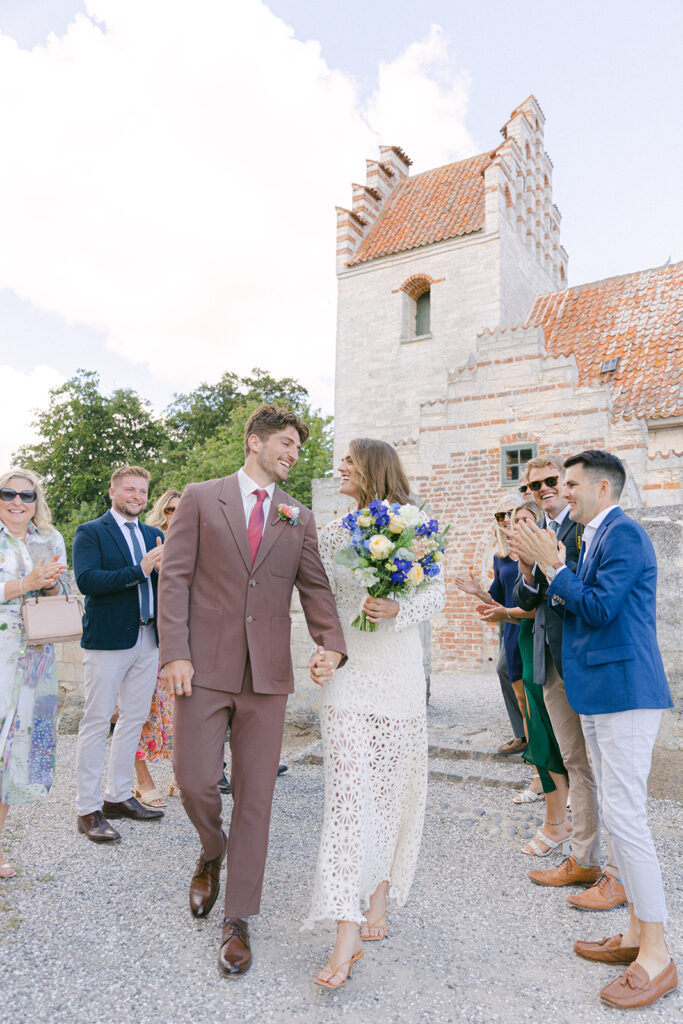
Step 2: Meeting Legal Requirements:
It’s important to note that the specific requirements may vary depending on your circumstances and the municipality where you plan to tie the knot. To avoid any last-minute surprises, I highly recommend consulting with the municipality or a professional wedding planner to ensure you have all the necessary documents in order. With proper guidance, you’ll breeze through this part of the process. Here are the documents typically required for a foreign national to get married in Denmark:
- Valid Passport: You will need to provide a valid passport as proof of your identity.
- Birth Certificate: You will need to provide a birth certificate to verify your date and place of birth. The certificate should be translated into Danish, English or German and legalized with an apostille stamp.
- Certificate of Marital Status: You may need to provide a certificate of marital status to confirm that you are not currently married. The certificate should be translated into Danish, English or German and legalized with an apostille stamp.
- Divorce Decree: If you have been previously married and are now divorced, you will need to provide a divorce decree to prove that the marriage has been dissolved. The decree should be translated into Danish, English or German and legalized with an apostille stamp.
- Certificate of No Impediment: In some cases, you may need to obtain a certificate of no impediment from your embassy or consulate in Denmark. This certificate verifies that there are no legal impediments to your marriage and should be translated into Danish, English or German and legalized with an apostille stamp.
- When entering and staying in Denmark as a citizen of a country outside the EU / EEA, you must hold a valid passport or another approved form of travel documentation.
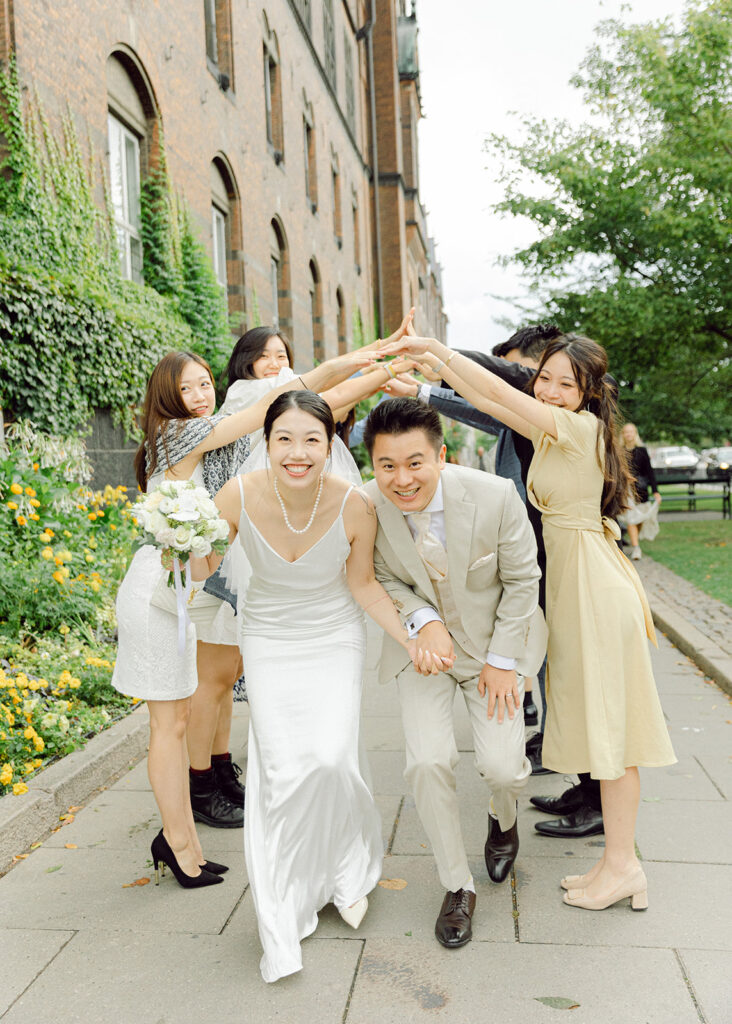
It’s important to note that these requirements may vary depending on your individual circumstances, and the municipality where you plan to get married may have additional requirements or requests. It’s recommended that you consult with the municipality or a professional wedding planner to ensure that you have all the necessary documents in order.
For more information about the specific requirements for getting married in Denmark as a foreign national, you can visit the official website of the Danish government’s Agency of Family Law.
Step 3: Booking Your Appointment:
Once you have all the required documents, it’s time to make an appointment with the municipality where you plan to get married. The booking process is usually straightforward. You can reach out to the municipality by phone or email, and some even have an online booking system on their website, making it even more convenient for you.
Remember to provide all relevant information, such as your name, nationality, and preferred wedding date, along with any additional services or accommodations you might need.
Pro tip: Securing Your Preferred Date and Time:
To ensure you secure your preferred date and time, it’s advisable to book your appointment well in advance. Keep in mind that some municipalities may have waiting periods, especially during peak wedding season. Planning ahead will help you avoid any potential disappointment and allow you to focus on creating beautiful memories.
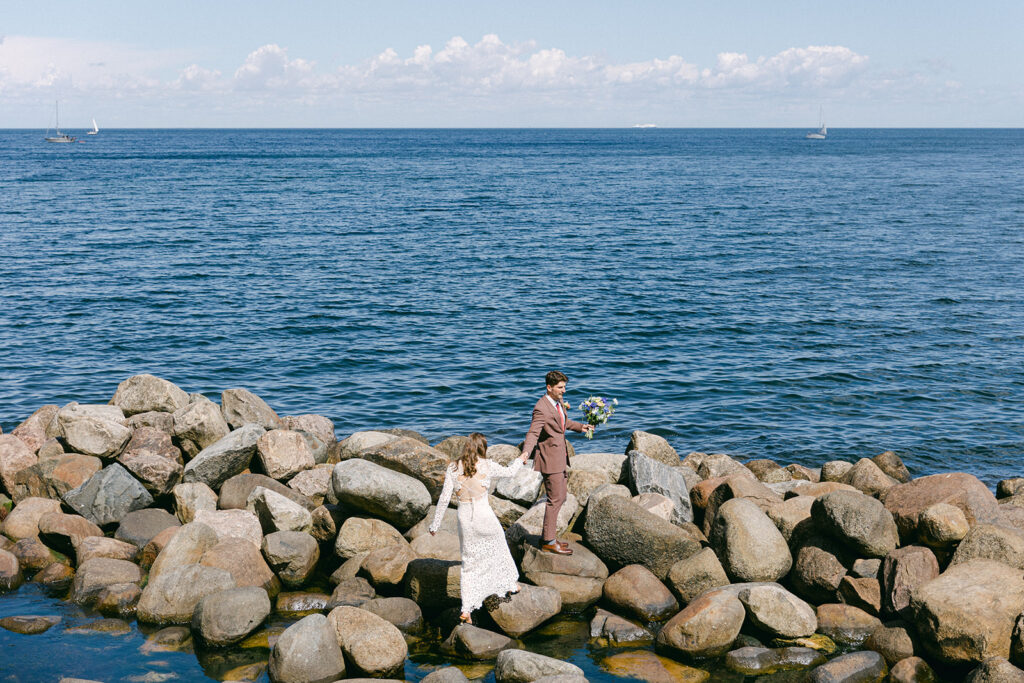
For example, to make an appointment with Copenhagen City Hall, you can visit their website here. The website provides detailed instructions on how to book an appointment, as well as information about the necessary documents and fees. Similarly, to make an appointment with Frederiksberg Municipality, you can visit their website and follow the instructions provided.
Step 4: Choosing the Ceremony Location:
Denmark offers two options for your wedding ceremony: getting married at the municipality or opting for an approved location of your choice. If you choose the municipality, the ceremony will usually take place in a designated wedding room or hall.
However, for a more personalized and unique experience, consider tying the knot at an approved location like a beach, park, or castle. Make it “your day” by booking a registrar at your preferred location!
Pro tip: Planning an Open-Air Wedding in Copenhagen:
If you have your heart set on an open-air wedding in Copenhagen, you’re in luck! The official website provides detailed information on open-air wedding venues and services in the city. Whether you envision a beachfront ceremony or a historic building backdrop, the website lists various options to suit your taste. Don’t forget to jot down the contact details of relevant venues and service providers.
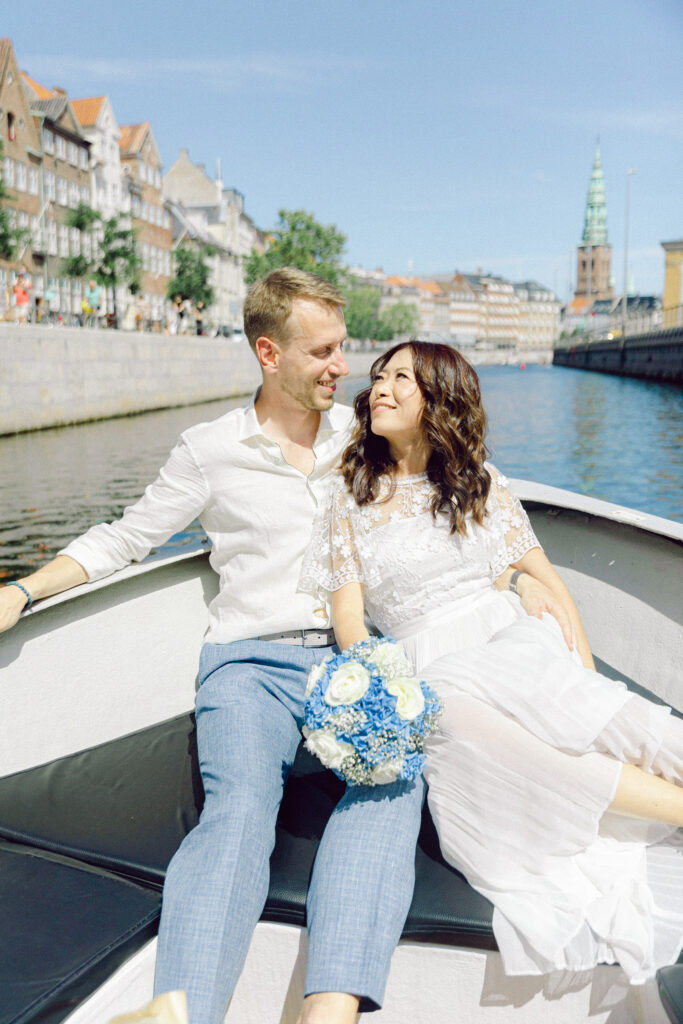
A Danish wedding promises romance, simplicity, and an unforgettable experience. With this step-by-step guide and a little bit of planning, you can make your dreamy destination wedding in Denmark a reality. Embrace the scenic beauty, immerse yourself in the warm Danish hospitality, and create lifelong memories surrounded by your loved ones. Cheers to love, adventure, and a Danish wedding that will be etched in your hearts forever!
